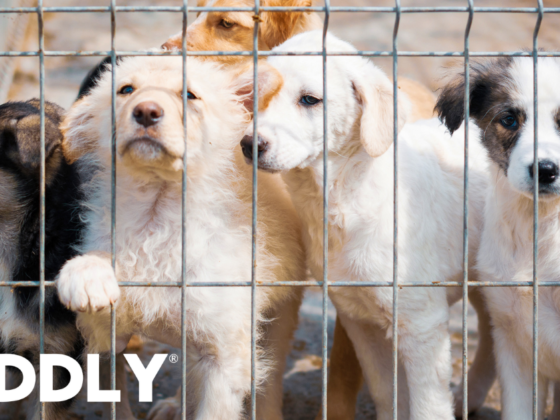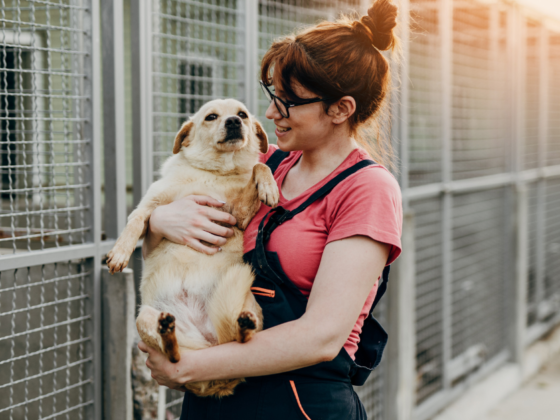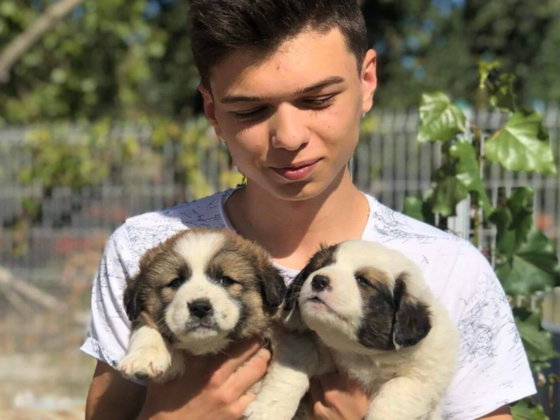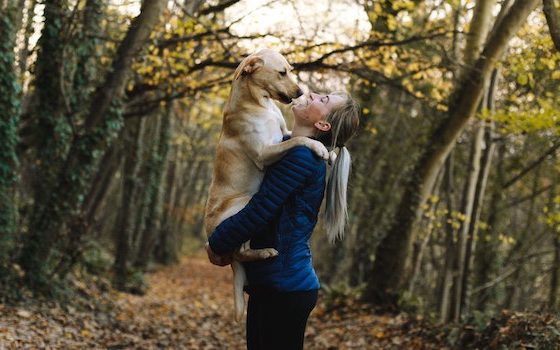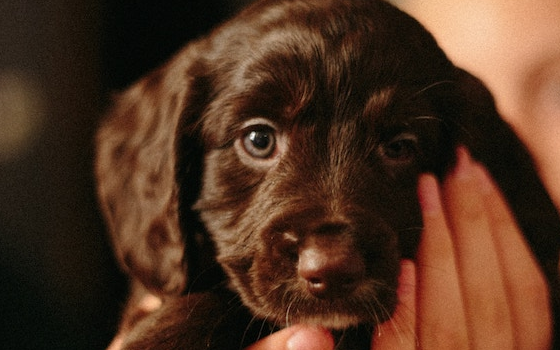The Forgotten Faces Worth Fighting For
Imagine stepping into a shelter. What catches your attention first? It may be the puppies tumbling over each other, or the kittens mewling for attention. The younger animals, bursting with energy and excitement, leap to the front of their kennels. It’s easy to fall head over heels in love.
But just a few rows down, there’s a different scene. A silver-faced senior dog, weary and exhausted, curls up on a blanket. A black cat with a single eye stares out from metal bars, hopeful for a second chance. These are the underdogs. The animals that don’t always steal the spotlight, but who have just as much love to give.
All too often, these overlooked pets wait the longest to meet their new families. And sometimes, they never get the chance. Shelters are overcrowded and underfunded, and it’s tragically common for the most vulnerable animals to pay the price. Senior, disabled, and stereotyped pets face the highest risk of euthanasia. According to Shelter Animals Count’s Mid-Year Analysis, 290,000+ animals have been euthanized in US shelters since the start of 2025. Lives are on the line, and animal lovers everywhere are fighting to create change—starting with the underdog.
The Silver Linings Of Silver Snouts
Time and again, would-be adopters skim over senior shelter pets in favor of their younger counterparts. This results in seniors waiting at the shelter for way too long, and often, seals their fate on the euthanasia list. Many beliefs surrounding this decision need to be challenged.
| The Belief | Counterpoint |
| Puppies and kittens are “cuter” | No one’s denying that these babies aren’t adorable—but is that really what’s most important? Picking a pet purely based on aesthetics misses what adoption is all about. Prioritizing lifestyle compatibility over looks is the way to go! |
| Younger pets are easier to train | Younger animals often have boundless energy and shorter attention spans. Training a puppy or kitten is a huge time commitment! Senior pets, on the other hand, often come from homes where they have already learned basic commands. Plus, an even temperament and a more established personality mean that it’s easier to anticipate a senior’s behavior. |
| Adopting a senior pet is a financial liability, since they need more medical support | This is often the biggest obstacle between senior pets and adoption. While seniors may have greater medical needs, consider this: Wouldn’t the puppy or kitten you’re adopting also grow old and encounter these same challenges? |
For first-time pet owners, adopting a senior can be an excellent choice. Their energy is steady, and their affection runs deep. They make great companions for leisurely evening walks and cuddling up for a nap on the couch. But above all, the best thing about adopting a senior animal is knowing that you’re giving a sweet soul a second chance.
Ways You Can Help Senior Pets
- Consider wish list items that support their unique physical needs! → Soft toys, canned food, orthopedic beds, joint supplements, and bathroom pads are all great items to gift to shelters and rescues caring for elderly animals.
- Support caretakers with a monetary donation! → Shelters and rescues always need help paying off vet bills. Many seniors have extensive medical needs that include dental work and frequent checkups at the vet. Your support can ease the financial burden weighing down rescues and help an elderly pet find some relief.
Embracing What Makes A Pet Unique
Like seniors, disabled pets are often overlooked. A missing limb or eye, blindness or deafness—it can make adopters pause. While it’s true that disabled pets may have more extensive requirements than their counterparts, that doesn’t mean that they have any less love to give. Rescuers and pet parents of disabled pets are well aware that these resilient souls are more than their so-called “limitations” and that caring for a disabled pet creates a profound bond.
| The Belief | Counterpoint |
| Disabled pets have a poor quality of life | A cat with a missing eye doesn’t wake up thinking about themselves as different than any other pet. A deaf dog doesn’t either. As long as they have a loving and thoughtful family that can attend to their needs, they’re living their best life! |
| Caring for a disabled pet is too hard or expensive | While some pets will require additional accommodations like ramps or wheelchairs, the cost of their care isn’t significantly more than that of any other pet. A little extra effort is worth the love you get in return! |
| Disabled pets can’t do the same things a “normal” pet can do | You’d be surprised at how quickly animals can adapt to new circumstances. A three-legged pup may not move as fast, but that doesn’t mean their way of interacting with the world is |
Ways You Can Help Disabled Pets
- Send shelters and rescues gifts that cater to the needs of their disabled pets! → Toys that make sounds are great for blind animals. Diapers, wraps, and pee pads are essential for pets with incontinence. Drag bags can help paralyzed animals safely and comfortably navigate the world. By taking into consideration the specific needs of the pet you want to help, you can support both the animal and their caretakers.
Rooting For The Underdog
Sometimes, the reason a shelter pet is overlooked isn’t because of their age or their medical needs. The animal’s personality and the perception of their breed or coloring can impact the time it takes for them to be adopted—if they get adopted at all.
| The Belief | Counterpoint |
| Black cats are bad luck | Black-coated dogs also face this harmful stereotype! This superstition dates back hundreds of years, and to this day, it still prevents animals from finding loving homes. Pets of any coat color can make excellent companions. |
| Shy pets can’t make good companions | Some pets just need a little extra love and support. With patience (and maybe a few treats), a once-shy pet can blossom. Don’t give up on these sweet souls too soon. |
| Pit Bulls are naturally aggressive | A lot goes into shaping an animal’s personality. Environment and socialization play a huge role in a pet’s behavior—more so than just their breed. |
Ways You Can Help Overlooked Pets
- Break the stigma! → By adopting a commonly-overlooked pet, you’re helping to break molds and give deserving animals a second chance at life.
- Consider gifting wish list items that can help animals settle into foster homes! → Soft blankets, comforting toys, calming aids, and treats can all go a long way to help a nervous pet feel at home.
Why Second Chances Matter
Ask anyone who’s adopted a so-called underdog about their experience, and you’ll get the same answer: the love these animals can provide is unmatched. Senior, disabled, and stereotyped pets can teach us lessons in resilience and unconditional love. They remind us that lifelong bonds aren’t about youth or appearances. And even more important, saving these lives frees up space for the next hurting pet who needs support from a shelter or rescue. With a little extra care and awareness, lives can be transformed. Will you be the change?






